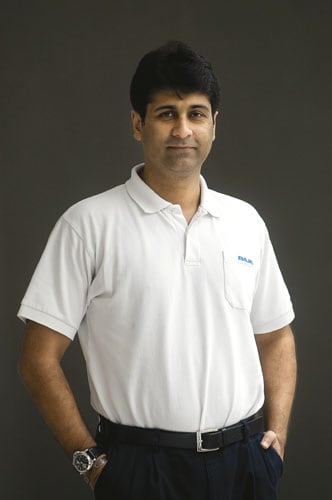
Family Values: Leading the Way Out of the Downturn
Family-owned businesses have suffered along with everyone else, but are able to leverage a competitive advantage to ensure they survive and prosper
Family-owned businesses have been hit by the economic downturn like many others. But while they have suffered along with everyone else, they are able to leverage an inherent competitive advantage to ensure they survive and prosper despite the poor business and financial climate.
According to Randel Carlock, Professor of Family Business and Berghmans Lhoist Chaired Professor in Entrepreneurial leadership at INSEAD, this advantage encompasses committed owners, long-term strategies, industry knowledge accumulated over generations, and values such as trust, stewardship and longevity.
However, such characteristics on their own do not ensure survival or success. More than at any other time, businesses need competent leadership. Some 95 per cent of businesses in Asia, the Middle East, Italy and Spain are family-controlled. So are over 80 eighty per cent of companies in France and Germany, and between 60-70 per cent of those in the US.
Wal-Mart, Fiat, Ford, Peugeot, Cargill, Michelin, Gap, IKEA, BMW. There’s a family behind the largest block of voting stock in each of those companies. Make no mistake about it, family business are a major source of wealth creation and employment.
So what makes family businesses unique, and what can we learn from them?
“Family businesses are unique in two main ways,” Carlock says. “First, they hold a long-term perspective; and second, they are driven by values. Their decisions tend to be based around what’s good for the family, what upholds the values they hold. But you also have family emotions, and so you need professional management. It’s all about these ‘professional-emotional’ families – combining family passion with professional management.”
Ford was the only of the three US carmakers not forced into bankruptcy. Did the family’s name on the dashboard make a difference? “The Ford family made sure Ford was protected: ownership and legacy. They took on long-term debt before the real trouble hit so the company wouldn’t have to go to the government and beg for money. Toyota, Fiat, BMW and VW (all family businesses) are also well-positioned.”
Carlock has similar stories in the banking sector. “Pictet, Banco Santander, Julius Baer, Lombard Odier … all family-controlled, none of them in serious trouble because the family owners said to the employees ‘we’re not out to make quick money; don’t see how many risky products you can sell, just make good solid investments for our clients.’ They were concerned about their businesses, not their bonuses.”
Then there were the battling Bancrofts – heirs to the Dow Jones publishing business. The older generation acted as stewards of a great journalistic heritage, heralded by the Wall Street Journal; the younger, third generation saw a bleak future for the industry itself and a share price that wouldn’t budge. Rupert Murdoch – himself embroiled in family business skirmishes – faced no competition in his bid for the Bancroft family business. The Bancrofts lost their business because they lacked a shared vision and which to build the family’s commitment.
“Firms don’t last more than three generations,” Carlock says. “They go bankrupt or they merge or they close down because they just can’t face the competition. If you look at the Fortune 500 in 1955, you will see just 77 of those companies are around today. In family firms, problem is part strategy, and part the family itself. If a family can align its values and vision and communicate its values and agree to invest their human and financial capital, they will succeed.”
Carlock likens positive family dynamics to piloting a plane. “It's great if a family owns its own jet. But who’s going to fly it? You want someone with training and experience. You all have to decide on where you’re going, together. And it has to be clear as to who’s going to have the authority to change directions mid-stream. You can’t have everyone yelling at the pilot.”
Carlock believes communication among family members is the main key to success. “If a family doesn’t communicate, they are no better than any other business,” he says. Other strengths that family businesses have and which translate well in the business world at large include:
Stewardship. “This is like corporate social responsibility,” says Carlock. Thinking in the long term instead of 90-day cycles. Family businesses do this naturally. It’s their name on the business, out in the community, for posterity.”
Values. “Look at Apple,” Carlock says by way of example. “The fear everyone had over Steve Jobs’ health was not so much about him per se; it was about his values – who would be able to be the innovator, staying out there in front of the competition?”
Encourage entrepreneurship. “Almost every family business in the world was started by an entrepreneur,” says Carlock. “This spirit continues to keep the company alive and regenerating.” And it shores up long-term performance levels.
And finally, there’s the ability to crystallise the family’s vision for itself in the future: how the business will succeed. In times of economic crisis this vision is especially important, as it can re-direct otherwise destructive and inhibiting emotions such as fear and anger. "Real leaders recognise the emotional impact of their leadership style on the company and its employees," states Carlock.
Or, as Napoleon I is believed to have opined, “A leader is a dealer in hope.”
[This article is republished courtesy of INSEAD Knowledge, the portal to the latest business insights and views of The Business School of the World. Copyright INSEAD 2024]





